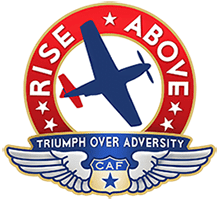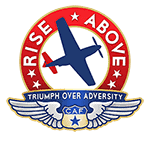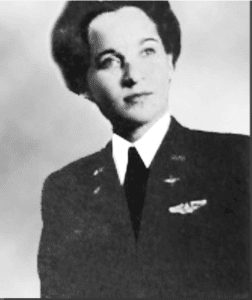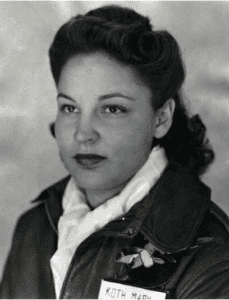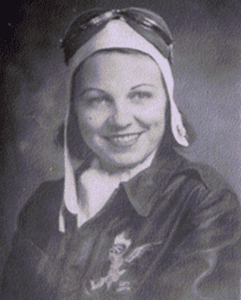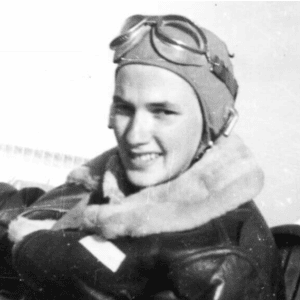Elbert T. Hudson
November 16, 1920 – August 8, 2017
Class: 44-C-SE
Graduation Date: 3/12/1944
Graduation Rank: 2nd Lt.
Service #0824834
From: Los Angeles CA
Civic leader, Tuskegee airman and L.A. Police Commission’s first black president
Albert Hudson, “Al” as he was commonly known, moved with his family to Los Angeles from Shreveport, Louisiana, in 1923 at the age of three. One of six children, he attended Los Angeles public schools before graduating from U.C.L.A.
During WWII, Al enlisted in the Army Air Corps. At the time, the American military was segregated, so he received flight training at Tuskegee Army Air Field on the campus of Tuskegee University. The air field was designated for the training of Black airmen. After flight training, Al served as a fighter pilot with the highly decorated all Black Red Tails Squadrons, and flew 23 bomber escort missions over Italy.

Hudson in a P-51 Mustang
After returning from the war, he worked in the L.A. County Probation Department and attended Loyola Law School at night, eventually leaving the Probation Department to attend law school full time. He married Marilyn Williams, the daughter of famed architect Paul R. Williams, and embarked on a journey of public and professional service.
Here are some of the milestones along his life path.
Al opened his private law practice in 1953, and over the course of his legal career, he represented many individuals, businesses and organizations in the Black community. He also mentored several young Black attorneys who worked in his office and who went on to become judges. In his later years, Al provided pro bono legal services to seniors at the Estelle Van Meter Multipurpose Center in South L.A. He was inducted into the Langston Bar Association Hall of Fame and was recognized as a Distinguished Alumnus by Loyola Law School.
In 1961, Al was appointed to the Los Angeles Police Commission. He was serving on the Commission during the Watts Rebellion in 1965 and played an important role in working with the Police Department to improve police-community relations. During his tenure on the Commission, Al became its first Black President. Former Police Chief Bernard Parks remembered Hudson as a trailblazer and role model.
Al’s public service also included serving on the County Human Relations Commission and as President of the Los Angeles Chapter of the NAACP. He was a vocal advocate for the human and civil rights of all, and especially for equity and inclusion of Blacks and the Black community.
In 1972, Al was hired as the President and CEO of Broadway Federal Savings & Loan, a bank founded by his father in 1947. He inherited a bank in financial turmoil and proceeded to manage Broadway’s turnaround and stabilize bank operations. Under the leadership of Al and his father, Broadway established itself as a bank of last resort for many first-time borrowers and people of color, and institutionalized Broadway’s commitment to community reinvestment. They infused Broadway with their core values of equitable treatment, inclusive behavior and policies, love of community and the obligation to give back.
Throughout his career, Hudson made himself available to mentor and counsel young adults. Frederick Terrell, a mentee, remembers Hudson this way: “It is all too rare when we meet people in whom wisdom, humanity, generosity, courage and pride are so seamlessly interwoven and so effortlessly displayed.”
Al was a modest man who rarely boasted about his accomplishments and who regularly shunned the spotlight. Few knew that he was a Tuskegee Airman or the first Black President of the Police Commission. He made listening a science and was often relied upon as a trusted confidant.
When asked what my father meant to me, I instinctively respond, “EVERYTHING,” because he influenced so many of my life decisions. On a subconscious level, I have spent my whole life following in my family’s larger than life footsteps. From becoming a lawyer, to being elected President of the L.A. NAACP, to public service as Chairman of the Community Redevelopment Agency, to my work as President & CEO of Broadway, to my disciplined exercise habits, I am following the example set by my father and his father before him.
One test of someone’s legacy is whether people seek to replicate the person’s values and life philosophies. Here’s what I learned from my father.
- Be modest. – It’s not the recognition, it’s the result.
- Give back. – Of those to whom much is given, much is expected in return.
- Pursue equity. – Everyone has value and deserves to be treated equally, with respect and dignity.
- Remember your humanity. – No man is an island; it takes a village.
I wish you could have known him like I did.
When the headquarters of the Broadway Federal Bank in South Los Angeles burned down during the 1992 L.A. riots, Elbert T. Hudson knew exactly what to do: rebuild.
He and his son Paul C. Hudson reestablished the bank, founded by Hudson’s father, in a trailer across the street from the ruins of the old building.
“We weren’t going to let a building get in the way of the bank’s mission,” Paul said.
Hudson, 96, died Aug. 8 at his Los Angeles home.
An outspoken advocate for black issues, Hudson strove to be an agent of change for his community, his daughter Karen said. During his tenure as president and CEO of one of the first black-owned banks in Los Angeles, he extended loans and job offers to black, Asian and Latino people who were discriminated against by other banks. He mentored dozens of black youth and served as the head of the Los Angeles chapter of the NAACP.
“He was firmly steeped in not only civil rights and community service, but the idea that for all your blessings you have to give something back,” his daughter said.
Hudson was born in 1921 in Shreveport, La., the fourth of six children. He moved to Los Angeles when he was 3 because his father, head of the local NAACP chapter, was getting death threats. He attended the 28th Street Grammar School, John Adams Junior High and Polytechnic High. His childhood was steeped in the traditions of the civil rights movement. On Sundays, after church, he helped his father sell NAACP memberships, Karen said.
“He felt like he had a lot to live up to,” Karen said.
During World War II, Hudson flew a P-51 Mustang as member of the Tuskegee Airmen, escorting bombers on 23 combat missions in the Mediterranean theater of operations. After the war, he obtained an undergraduate degree at UCLA and earned a law degree at Loyola University.
In 1963, Hudson was named to the Los Angeles Police Commission, where he became an outspoken advocate for the black community. When he was named the first black president of the panel in 1966, shortly after the Watts Riots, he did not hide his reservations about the position.
“In view of the present tensions and conflicts that exist in our city today, I am not really sure whether I should thank you for electing me to the presidency,” Hudson said in his acceptance remarks.
Back then, the names ringing out at Police Commission meetings were not Ezell Ford and Brendon Glenn but Leonard Deadwyler and Jerry Lee Arnie, both shot and killed by LAPD officers during Hudson’s tenure.
Hudson urged the LAPD to learn more about minority communities, and also counseled his own community against blaming police for things they had no control over. He criticized officers for not understanding “the day-to-day oppression under which black and brown people live.”
He resigned his post as vice president of the commission in 1971 to take a position as head of the L.A. chapter of the NAACP. During a news conference announcing his resignation, he expressed reservations about the direction the department was taking.
“I could not serve the best interests of the Police Department while serving the best interests of my organization and my community,” Hudson said.
His father, H. Claude Hudson, founded one of the first black-owned banks in L.A. in 1946, and Hudson took over the bank in 1972.
As president and CEO, Hudson focused less on profits and more on growing minority neighborhoods, his daughter said. Loans from Broadway Federal Bank helped establish Ward African Methodist Episcopal Church, the Second Baptist Church and the Lewis Metropolitan Christian Methodist Episcopal Church and several black neighborhoods in South Los Angeles.
His friends and family remember a man of humility and quiet strength who strove to be a role model for those around him. He was a highly disciplined man who woke up for a 5 a.m. walk around the neighborhood every day, maintaining the regimen well into his 80s. He took his family to the beach every Sunday, Karen said, and made pancakes for her sleepovers.
Hudson was a consummate gentleman, but never stood on ceremony, “as happy with a hot dog as a steak,” Karen said. He chose his words carefully, but he was not afraid to raise his voice. He eschewed a political career and instead spent much of his time mentoring dozens of men and women and supporting the children in his neighborhood.
“He was so much to so many,” Paul said. “From war hero to civil rights activist, from legal advisor to community banker, from friend to mentor. But to me, he was everything.”
Sources:
African American Board Leadership Institute
Findagrave.com
LA Times
